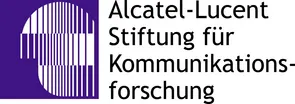Alcatel-Lucent: Kollegiat in IZKT at Hochschulkolleg EGovernment

Initial Situation
Currently it comes to isolated development and parallel investments in each regional public authorities. The reason for this is insufficient networking and communication between the stakeholders in the area of eGovernment. A synchronized and coordinated approach occurs much too rarely. Solutions and good examples have too little distribution and acceptance. The exchange between science and practice is inadequate.
Project Aim
The Hochschulkolleg eGovernment im "Internationalen Zentrum für Kultur- und Technikforschung" (IZKT) at Universität Stuttgart wants to initiate and coordinate the actors from academia and practice, build synergies and avoid redundancies. Thereby, questions and problems can be addressed application oriented and interdisciplinary. Solutions and findings can be provided in the context of publications, symposiums or by good and best practices.
Realization
Initially, three overlapping fields of activity were identified for the Hochschulkolleg.
- Science and research: Differential sectors of eGovernment raise questions which need to be clarified by the interdisciplinary research association. For example legal issues associated with the implementation of eProcurement etc.
- Knowledge transfer: A Hochschulkolleg’s main topic is to make available and newly acquired knowledge about eGovernment accessible to all participants and interested people.
- Priority fields of practice: Central starting points for activities of all sections of the Hochschulkolleg are the suggestions and requests from the field.
Value
Structural elements of the Hochschulkolleg are the following:
- Fellows: The Hochschulkolleg convenes one or two Fellows each for one year. For the year 2002/2003 Prof. Dr. Helmut Krcmar and Prof. Dr. Klaus Lenk were convened.
- eGovernment forum: The Kollegiaten Prof. Krcmar and Prof. Lenk invite in regular intervals to events of the eGovernment forum with various topics.
Stakeholder
Hochschulkolleg eGovernment of Alcatel-Lucent Stiftung für Kommunikationsforschung